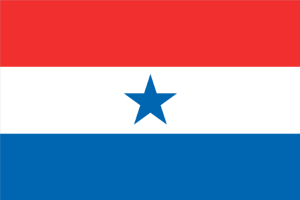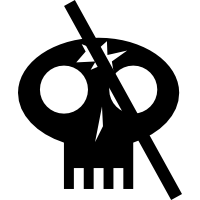David Stark / Zarkonnen: blog
- 2024 Retrospective
2024 has been a pretty shit year, so here's a warning for some complaining ahead - nothing truly catastrophic, I and mine are still alive.
- 2023 Retrospective
So what have I been up to in 2023?
- 2021
2021, second year of the pandemic. As usual, I've collected the various things I got up to this year for a retro post. Once I'd done that, I needed to process the results a bit. It doesn't feel like a year's worth. Maybe half a year. I am angry about the pandemic, about anti-vaxers, cruel politics, and the way I've scrunched up my life into a small thing to help stop the spread of the disease. I could write more on this, but it would just descend into screaming.
So... what have I been up to this year?
- 2020 Retrospective
What a year. I just managed to wrangle my inbox down to zero, so it's time to attempt to write a retrospective. I did one in 2019, and I'm roughly following it to keep some continuity.
Obviously the big thing was - is - Covid. I didn't get it, and I don't personally know anyone who died from it, though a friend is suffering pretty badly from long Covid, that awful post-viral fatigue thing. Still, it's really changed our lives. We've been very careful to self-isolate, usually going beyond the rather insufficient government rules and recommendations. Switzerland is actually one of the worst-hit countries in the world - it's just small and so the total numbers aren't that big.
So a lot of staying inside, not seeing friends and family, not going on trips. I don't need to describe this, you've had the same experience.
Leaving the pandemic aside somewhat, what did I get up to?
- 2019 Retrospective
My partner and I went to the UK to stay with their family over Christmas. It's been a pleasant and quiet few days, and I've actually managed to not think about work for a few days. That's pretty unusual for me.
- The Art and Literature Gland
I've been devouring Geek Sublime by Vikram Chandra, which I was given as a Christmas present. The book ties together foundations of computer science, Sanskrit, and the writer's own life experiences. It does not stay up in the clouds creating clever equivalences and brain porn moments but also examines the relationship between the powerful and the powerless, the remembered and the forgotten.
And so Sanskrit is a beautiful language with a rich legacy, but it's also a tedious rote subject inflicted on countless students in the name of shoring up social ideas of purity and hierarchy. Code is amazing, but much of it is promulgated by strutting jerks who see themselves as the new masters of the universe.
One thing the book mentions that I particularly like is the Indian aesthetic theory of rasas. Originally formulated in the context of theatre about two millennia ago, the idea is applicable to all forms of art and literature.
Why do I like it so much? Because it describes a precise mechanism by which art and literature actually work.
- "Where do you get your ideas?"
It's a fairly infamous question, and one that has writers give annoyed and unhelpful answers. There are notable exceptions, like this excellent essay by Neil Gaiman.
It's a question I just got asked for the first time, and to my surprise, I realized I have a fairly concrete answer.
- Building upon Lovecraft
I recently read A Mountain Walked, a compilation of modern writing based on HP Lovecraft. I quite enjoyed the stories. Then I read The Litany of Earth by Ruthanna Emrys, and re-evaluated the stories in the compilation: they were actually really, awfully shallow.
- World and Solar System Flags
Rae and I came across Flag Stories, a pretty entertaining website doing various tallies and comparisons of national flags. One set of images was "averaged" flags for each of the continents - taking the layouts, colour schemes and symbols most common to the countries there. There was also a "World Flag" that took the most popular elements of them all, which ends up with a pretty but nondescript red-white-blue horizontal tricolor with a blue star.

Of course, that wouldn't really fly (ouch) as an actual flag of the world. It ends up looking very European, and not really representative of the planet as a whole. There recently was a very pretty proposal by Oskar Pernefeldt using seven interlocking circles on a blue background. Seven circles for seven seas and continents. It looks nice, but it does have two downsides: it's a pretty complex design geometrically, and the blue-and-white colour scheme might be too Western. Yes, you probably think blue and white is lovely, but they are Western and Christian colours. Other regions of the world might prefer green, or red.

So we decided to try our own hands at designing a world flag that would be very simple and more universal - and while we were at it, we also tried making one for the solar system as a whole.
- The most Cyberpunk moments of 2015
To only slightly paraphrase William Gibson - cyberpunk is already here, it's just not very evenly distributed. Cyberpunk predicted a future where people subordinated themselves to Japanese-style megacorps and freedom could only be found at the margins, by intrepid demi-monde hackers with zany hairstyles. What we have is actually worse: you are disposable even if you play by the rules.
And most of the intrepid hackers have been pacified by promises of fat IPOs and mainstream acceptance. They spend their time finding new ways to shove ads down our throats and creating solutions for "problems" no one outside of the Bay Area actually cares about.
Isn't it a bit weird that Edward Snowden, our one bona fide cyberpunk hero, throwing back the curtain on a massive government panopticon, was a government contractor? The kind of working-for-the-man corporate drone that was meant to contrast negatively with cyberpunk's zany heroes?
As for all those other trappings of robots and whatnot, we're getting there. Without further ado, I present you the most cyberpunk moments of 2015.
- 2015 Personal Retrospective
I've done plenty of gamedev-related retrospectives recently, summing up the first two years of Airships development, doing a presentation on distribution and marketing to local Zurich game devs. So for this quick retrospective, here's all the non-work stuff that happened.
- Blog posts from The Future!
I've been writing blog posts on the basis of writing prompts from dailypost.wordpress.com, and today's is quite amusing: "Our blogs morph over time, as interests shift and life happens. Write a post for your blog - but three years in the future."
- Small-Town Miasma
tw: physical abuse
I recently had the chance to catch up with an old friend, the sister of my best friend back in primary school. Late in the evening we started talking about our shared experiences with some of the awful teachers we'd both had. One of them was especially prominent: when I was in fourth grade, he had this tendency to lift me up bodily by my hair as a punishment. Other kids he hit in the head or dangled by their feet out of a second-story window - over hard concrete.
I also remembered that, years later, I saw a newspaper article that he'd been fired from his job. I decided to see if I could dig up the details.
- Refugees and Passports and Looking Away
Remember Anne Frank? Tragic story. If only there had been anything someone could have done. Like, for example, giving her family a visa to come to the US, or Cuba, or anywhere else on the planet.
- Racial Prejudice vs Structural Racism
This is one of those maybe-stating-the-obvious things, but I've noticed that people are using the word "racism" to mean two different things. Some use it in the narrow sense of "racial prejudice". A person is racist, or is a racist, because they believe that one race (usually theirs) is better or more worthy than another. Others use it in the wider sense of the edifice of racial inequality, the forest made of individual prejudice-trees, the dynamics that harm people because of what "race" society assigns to them.
- Additionally abstracted aliens
I really like to come up with interesting aliens - both sentient ones as well as weird alien ecosystems. One idea that occurred to me a while ago is a planet where all macroscopic animal life is technically the same species.
- Is your forum about discussion, support, or action?
I've been thinking about a useful categorization of what online forums are for: discussion, support or action.
In a discussion forum, you try to figure out things about the world: ideas, problems, etc. For example, you might discuss whether squirrels are stealing everyone's TV remotes.
In a support forum, there is a community for providing emotional and practical support for coping with some problem. Say your TV remote keeps on vanishing, and having to buy new ones constantly is a pain.
Finally, in an action forum you seek to solve a problem. It might provide advice on pest control or squirrel repellent you can spray on your remote.
All of these types of forum are useful, but they have different standards of interaction. Lots of shouting arises when people disagree about what kind of forum they're in. Going into a support forum and arguing about whether remotes are really going missing, going into a discussion forum and accusing people of being awful for considering if people are simply misplacing their remotes, going into an action forum and wanting to argue fundamentals, etc.
- A grammar for trolley problems
Trolley problems are ethical thought experiments that are IMO a bit too popular and contrived. McSweeney's did a recent post making fun of them and inspired me to create a generator for them.
The generator is based on a context-free grammar, a notation that lets you describe symbols turning into sequences of other symbols. It's on GitHub and I'm enthusiastically accepting pull requests for additional entities that could be imperiled by trolleys.
- Pillars of Eternity: Hazels are venomous
There was a Twitter discussion yesterday about a transphobic joke in the recent Obsidian game Pillars of Eternity. Here's is my attempt to convince you that transphobic details in fiction are a problem.
- Skullcoin: A modest proposal
There's been a lot of talk about alternate currencies recently, with Bitcoin, Dogecoin, Stellar and so on all jostling to be The Future. I would like to suggest an... alternate approach. It may strike you as odd at first, but hear me out: it has some truly fascinating dynamics.
- The Ham Initiative, or: Bloody Key Scammers
If you're a game developer, you've likely encountered these: emails from people claiming to be a Let's Player or representing a game news site, asking you for a review copy of your game. A lot of these are fake, but of course there are real ones too, which you really need to get the word out about your game.
- More robust game AI with randomness
When programming game AI, a common pattern is to look at each possible action and assign them a numerical score to figure out which to take. This may be done explicitly, with each possible action actually considered, or implicitly. A lot of thought may go into calculating the best action scores, taking all available information into account and also projecting play forwards in time. Or it may be as simple as "there's an enemy in front of you, shooting it would be a great idea".
A problem can arise when the AI always picks the action with the best score. This sounds odd - after all, the best-scoring action is the best action, right? But unless you did a very good job at calculating scores, a particular type of action can end up constantly scoring best. The AI gets locked into repetitive actions that become easy to predict and outmanoeuvre, and may fail to take care of secondary or long-term goals.
(This post is partly inspired by Vi Hart and Nicky Case's Parable of the Polygons in that it has a bunch of interactive toys to hopefully illustrate its points. It's not nearly as pretty as the polygons stuff, mind you.)
- The Great Carbon Filter
You may be familiar with the term "great filter". The universe is billions of years old, and it took hundreds of millions of years for humans to turn up after the first vertebrates. If interstellar spaceflight is at all possible, a few million years ought to suffice to spread through a galaxy. There are also a lot of stars in the galaxy, and as we are increasingly able to tell, a lot of planets. It seems implausible and arrogant to assume that we are the first and only lifeform capable of complex thought and tool use. So where are the aliens? There must be clever tool-using lifeforms elsewhere in the galaxy, and some of them must have arrived in this state hundreds of millions if not billions of years earlier.
- Open data and frog counting methods
Last month, I participated in the Open Data Hack Room organized by the University of Berne for their "Night of Research". As a participant, I worked on visualizing some Swiss health data, but that's not what I'm writing about today. Instead, I'd like to go through a very simple example of visualizing some open data, and use it as a starting point to discuss potential sources of error and confusion. It's something I did at around midnight when we were finishing the wine, so I think it's a nice simple starting point: plotting information about referendum votes in the canton of Zurich.
- This is your camera on drugs
Most modern cameras have a built-in face recognition system that puts little rectangle over people's faces - and sometimes over seemingly random other parts of the image, like an interesting pattern in a cat's fur, or a cake. The way this generally works is by first detecting individual facial features such as eyes and mouths and then looking for face-like constellations of these features. And as it happens, this has an entertaining connection to how certain drugs work, as I shall now explain.
